Pediatric Research
Our research includes basic and translational science and clinical studies aimed at novel discoveries that improve pediatric care.
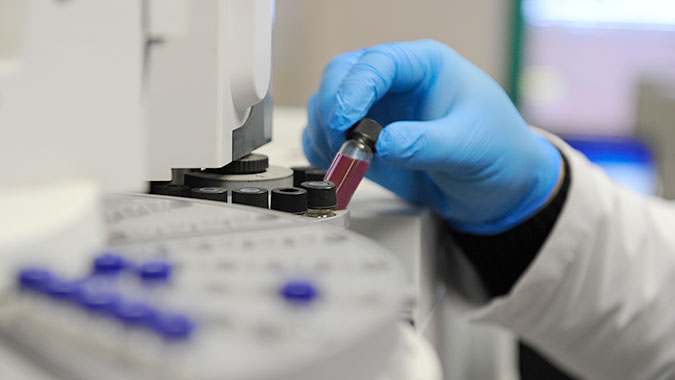
Research Funding
Our pediatric faculty researchers are nationally and regionally competitive, receiving funding from federal and state institutes and agencies as well as private and public foundations. These funding sources include:
- National Institutes of Health
- National Science Foundation
- Agency for Healthcare Quality and Research
- Health Resources and Services Administration
- Patient-Centered Outcomes Research Institute
- California Institute for Regenerative Medicine
Translational Science
UC Davis pediatric researchers are involved in many pre-clinical, translational types of research focused on translating discoveries into real-world clinical applications that have the promise of saving the lives of neonates, children, and adolescents.
- Animal models for neonatal and pediatric applications
- Gene therapy
- Stem cell research
- Lifespan research
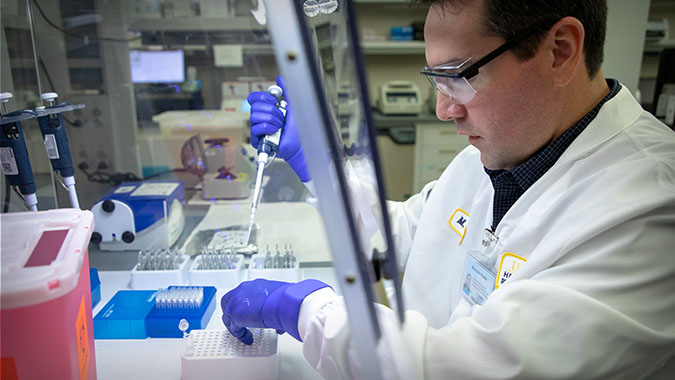
Collaborative, Clinical Research
Another important component of our research program is the multidisciplinary collaboration with other departments, schools, and colleges at UC Davis and beyond. Our researchers work closely with other scientists on clinical studies aimed at fast-tracking novel therapies, diagnostics, and procedures to help improve clinical practice and the overall health of children.
From Labs to Lives: Dr. Geoanna Bautista
From Labs to Lives: How Research Funding Solves Real-World Problems. UC Davis is a powerhouse for breakthroughs and impact. Our interdisciplinary research plays a vital role in building the region’s economy. Our research improves the quality of life of residents and contributes to America’s global leadership in technology and innovation.
From Labs to Lives: Dr. Geoanna Bautista
School of Medicine Office of Research
The office manages research awards and proposals, oversees laboratory safety and research space, and provides grant submission guidance.
Clinical and Translational Science Center (CTSC)
CTSC partners with UC Davis schools and colleges engaged in life science and translational research to support collaborative projects with the potential to improve health care.
Clinical Research Center
The CTSC Clinical Research Center is an outpatient clinic that provides flexible, carefully monitored clinical resources necessary for patient-oriented research focusing on human health and/or disease.
The goal of the Translational Resources and Pilot Program is to enhance and augment research areas crucial to translational research by providing support for novel research projects, the development of new teams and partnerships, high risk/high impact research, projects that span the translational spectrum (T1-T4) and lifespan health, and with the inclusion of trainees.
Learn more about the Translational Resources and Pilot Program at UC Davis.
The Institutional Review Board (IRB) Administration is committed to following the federal regulations to protect the rights and welfare of human subjects involved in research conducted under the auspices of the University of California, Davis.
Learn more about the Institutional Review Board (IRB).
Breakthroughs that address the health challenges facing our world are at the core of UC Davis Health’s mission to discover and share knowledge to advance health. We conduct more than 2,000 research studies at any given time, including basic science, translational, and clinical trial research — all with the goal of bringing new, effective and safe treatments to patients more quickly.
Learn more or find a study by visiting UC Davis Clinical Trials.
NeuroNEXT was created to conduct studies of treatments for neurological diseases through partnerships with academia, private foundations, and industry.
The network is designed to expand the National Institute of Neurological Disorders and Stroke’s (NINDS) capability to test promising new therapies, increase the efficiency of clinical trials before embarking on larger studies, and respond quickly as new opportunities arise to test promising treatments for people with neurological disorders.
Learn more about NeuroNEXT.
The Translational Research Education and Development program is committed to developing the next generation of independent, highly successful academic faculty at the schools of medicine and nursing at UC Davis Health.
The Clinical and Translational Science Center (CTSC) hosts a wealth of opportunities for workforce training and education for pre- and postdoctoral personnel involved in translational research.
Learn more about the Translation Research Education and Development at the CTSC site.
Funding from the NIH-sponsored Building Interdisciplinary Research Careers in Women’s Health (BIRCWH) Program supports career development of junior Ph.D. and M.D. faculty researchers interested in women’s health research.
Learn more about the Building Interdisciplinary Research Careers in Women’s Health (BIRCWH) K12 Program at UC Davis.
This program focuses on disseminating mentoring best practices for faculty in the health sciences including how to foster an environment that values and supports mentoring in research and career progression. We serve the professional and career development needs of postdoctoral scholars, assistant and early associate professors, and other trainees, with an emphasis on those wishing to have a research-oriented career.
Learn more about the Mentoring Academy for Research Excellence (MARE).
The TL1 program is jointly sponsored by the UC Davis School of Medicine and the Clinical and Translational Science Center (CTSC). It provides clinical and translational research training for medical students, predoctoral students and postdoctoral scholars in the basic sciences using a team science approach.
Learn more about the CTSC TL1 Pre and Postdoctoral Clinical Research Training Program.
This program supports highly qualified junior faculty to conduct mentored, multidisciplinary, patient-oriented clinical research.
Learn more about the CTSC KL2 Program.
This NIH-NCI funded program combines key didactic, research, and career development components to train independent and productive clinical oncology researchers.
Learn more about the Paul Calabresi Clinical Oncology K12 Program

